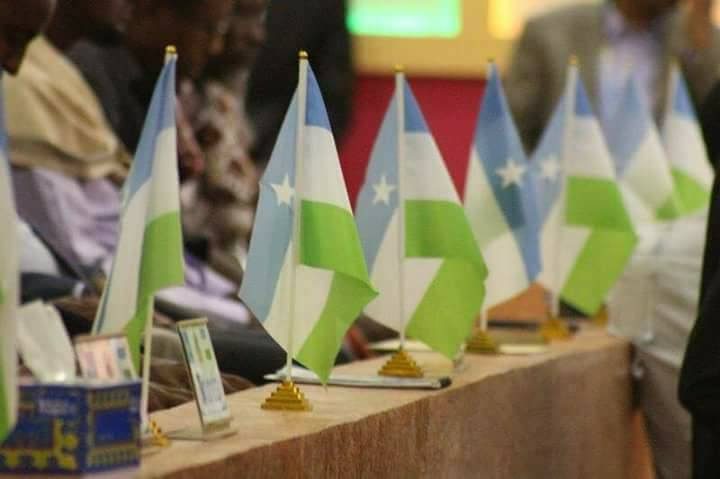Executive Summary
The Puntland State of Somalia has long been a cornerstone of stability and governance in northeastern Somalia, playing a critical role in countering violent extremist groups such as ISIS and Al-Shabab. However, the lack of meaningful support from the Federal Government of Somalia (FGS) has exacerbated longstanding grievances, including concerns over constitutional adherence, economic marginalization, and disproportionate policies affecting Puntland’s residents. These challenges have reignited debates about Puntland’s future within the Somali Federation, particularly in light of Somaliland’s unilateral declaration of independence in 1991.
This white paper explores three strategic options for Puntland to address these challenges while preserving stability and autonomy: (1) convening a National Congress for Constitutional Reforms, (2) transitioning to a Confederation Model, and (3) pursuing a Declaration of Independence. Each option is analyzed for feasibility, challenges, and steps forward, with recommendations for prioritizing dialogue, engaging international mediators, and addressing security collaboratively. The paper concludes that while independence remains a last resort, incremental steps toward confederalism or constitutional reform could preserve Somali unity while addressing governance grievances.
Introduction
Puntland State has been a stabilizing force in Somalia for decades, contributing significantly to governance reconstruction and countering violent extremism. Despite these efforts, the Federal Government of Somalia (FGS) has failed to provide adequate support, leading to growing discontent over issues such as constitutional violations, economic marginalization, and inequitable policies. These tensions have prompted a reevaluation of Puntland’s role within the Somali Federation.
This white paper examines three potential pathways for Puntland to navigate its current challenges: constitutional reform, confederalism, and independence. Each option is assessed for its feasibility, potential challenges, and actionable steps, with the aim of providing a roadmap for Puntland’s leadership and stakeholders.
Option 1: National Congress for Constitutional Reforms
Feasibility and Challenges
Consensus-Building: A National Congress could foster dialogue between Puntland and the FGS, but success depends on Mogadishu’s willingness to engage. Historical precedents, such as the 2000 Arta Conference, highlight the difficulties of overcoming clan rivalries and centralization tendencies.
Legal Framework: The 2012 Provisional Constitution provides a foundation for reform, but amendments require broad political buy-in from federal states and Mogadishu.
International Support: Mediation by regional bodies like the African Union (AU) or the Intergovernmental Authority on Development (IGAD), as well as involvement from civil society and traditional leaders, could lend legitimacy to the process.
Steps Forward
Coalition-Building: Partner with other federal states, such as Jubaland and Galmudug, to form a united front advocating for constitutional dialogue.
Preconditions: Secure guarantees for equitable representation and international oversight to ensure Mogadishu’s compliance.
Phased Approach: Prioritize urgent issues like resource-sharing and security cooperation, while deferring contentious topics such as electoral models to later stages.
Option 2: Confederation Model
Feasibility and Challenges
Autonomy vs. Unity: A confederation would grant Puntland greater sovereignty, including independent security forces and fiscal control, while maintaining nominal Somali unity. However, Mogadishu is likely to resist ceding power.
Regional Dynamics: Neighboring states like Ethiopia and Kenya may oppose a confederation if it destabilizes Somalia, though some might tacitly support it to counter Al-Shabab.
Constitutional Hurdles: Transitioning from federalism to confederalism would require redefining the social contract, potentially through a referendum or inter-state treaty.
Steps Forward
Draft a Framework: Propose a confederal constitution outlining shared competencies (e.g., foreign policy, currency) and state-level powers (e.g., taxation, security).
Lobby Internationally: Highlight the confederation as a stability measure to international donors like the EU and UAE, emphasizing parallels with decentralized models such as the UAE’s federalism.
Pilot Cooperation: Initiate cross-state projects, such as joint counterterrorism operations and trade agreements, to demonstrate the benefits of confederalism.
Option 3: Declaration of Independence
Feasibility and Challenges
Legal and Diplomatic Barriers: Under international law, secession is rarely recognized without central government consent. Puntland would face significant challenges in gaining recognition, similar to Somaliland’s unresolved status.
Security Risks: Mogadishu could retaliate militarily, exacerbating conflict and providing opportunities for Al-Shabab to expand its territory.
Economic Implications: Loss of access to Somali financial systems and international aid (via Mogadishu) could cripple Puntland’s economy unless alternative partnerships are secured.
Steps Forward
Preparatory Measures: Strengthen governance institutions, diversify revenue streams (e.g., port fees, diaspora bonds), and seek bilateral aid from countries like the UAE and Ethiopia.
Regional Diplomacy: Court neighboring states for recognition, framing independence as a stabilization measure and leveraging Puntland’s role in countering extremism.
Gradual Unilateralism: Incrementally assert sovereignty (e.g., issuing visas, signing trade deals) while avoiding overt provocation until international backing is assured.
Recommendations
Prioritize Dialogue: Exhaust all avenues for constitutional reform and confederation before considering independence. A united front with other federal states increases leverage in negotiations with Mogadishu.
Engage International Mediators: Involve regional and international bodies such as IGAD, the AU, and key Somalia donors like Qatar and Turkey to pressure Mogadishu into meaningful negotiations.
Contingency Planning: Prepare discreetly for independence by building foreign alliances and securing revenue streams, while publicly advocating for reform.
Address Security Collaboratively: Propose a federal-state security pact with AU support (e.g., AUSSOM) to counter extremists, showcasing Puntland’s commitment to Somali stability.
Conclusion
Puntland’s strategic options—constitutional reform, confederalism, and independence—each present unique opportunities and challenges. While independence remains a last resort, incremental steps toward confederalism or constitutional overhaul could preserve Somali unity while addressing governance grievances. By prioritizing dialogue, engaging international mediators, and addressing security collaboratively, Puntland can navigate its current challenges and secure a stable and autonomous future within or alongside the Somali Federation.
This white paper serves as a foundation for informed decision-making by Puntland’s leadership, stakeholders, and international partners, ensuring that any path forward prioritizes stability, autonomy, and the well-being of all Somali people.
END
By Warsame Digital Media (WDM)


COMMENTS